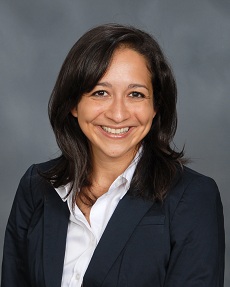Regulatory Agency Head Highlights Accounting Research
Corporate auditors face a variety of pressures: They must remain skeptical of statements made by clients, while delivering service to those same individuals.
Awareness of persuasion tactics—and how they can influence auditors’ work – is key to delivering a quality audit, according to new research co-authored by a Lehigh assistant accounting professor.
The research caught the attention of James R. Doty, chairman of the Public Company Accounting Oversight Board, who mentioned the research as a particularly important area of study during a speech in January at the American Accounting Association’s mid-year meeting.
The study, Does Pressure to Satisfy Clients Influence How Auditors Perceive and Respond to Client Persuasion?, was authored by Sanaz Aghazadeh, assistant accounting professor at Lehigh, and Kris J. Hoang, assistant accounting professor at Tulane University.
The authors examined the relationship between the pressure to satisfy clients and the auditors' response to client persuasion tactics, particularly when clients speak confidently about their company’s financial data. They found that stronger pressure to serve clients—when, for example, the audit firm will be under client review at the end of the process—led auditors to perceive executives’ confident statements as an attempt to persuade them, rather than simply an innocuous message.
They also found, however, that auditors were more likely to seek powerful evidence when they encounter such persuasive language under weaker client service pressure—for example, when no post-audit satisfaction survey was scheduled.
So, even though auditors are more likely to perceive confident statements as a persuasion tactic when there is greater pressure to serve clients, auditors are deterred from pursuing evidence from a more objective source, ultimately affecting the quality of the audit.
“I was not surprised when Chairman Doty made special mention of Professor Aghazadeh’s research because the line of questioning that she and her colleague are pursuing could have a major impact on auditing firms’ approach,” said Parveen P. Gupta, professor and Accounting Department chair at Lehigh.
As a result of these findings, Aghazadeh recommends that senior partners of auditing firms share their expectations and goals for post-audit surveys with their staff to prevent persuasion tactics from affecting the quality of audits. She also urges auditors, especially younger auditors, to seek face-to-face interactions with clients.
"Auditors need to be more aware that these persuasion attempts are happening," said Aghazadeh. "Younger auditors are used to using more technology-based communication tools, like texting and emailing, but should be encouraged to ‘get in the client’s face’ to ensure they are obtaining the information they need to conduct a quality audit."
Posted on:


